
Home > The King’s Speech Ending Explained

The King’s Speech Ending Explained
- UPDATED: February 1, 2024
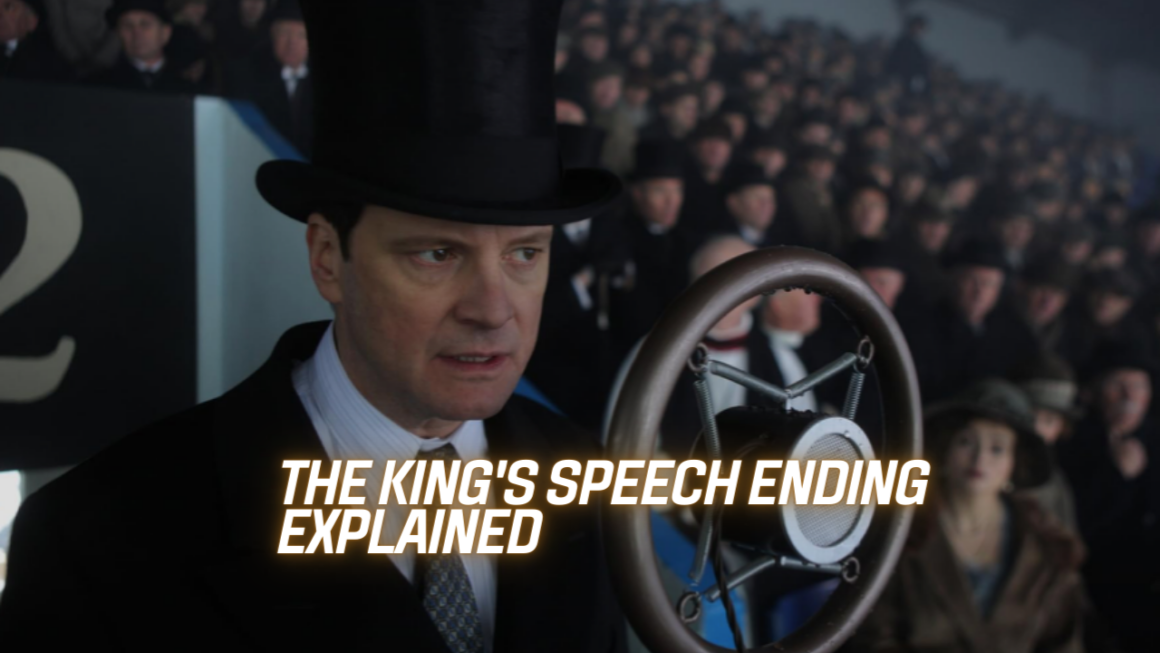
Table of Contents
“The King’s Speech,” a historical drama released in 2010, directed by Tom Hooper and written by David Seidler, captivates audiences with its portrayal of King George VI’s journey to overcome his stammer with the help of Australian speech therapist Lionel Logue. The film, which stars Colin Firth as King George VI and Geoffrey Rush as Lionel Logue, concludes on a note of triumph and personal achievement, reflecting the king’s significant progress and the deep friendship formed between the king and his therapist.
Overcoming the Stammer
At its core, the film’s climax is centered around King George VI’s (Bertie) pivotal wartime speech to the British Empire, declaring war on Nazi Germany in 1939. This moment is not just about the delivery of a speech but symbolizes Bertie’s overcoming of his stammer, the culmination of his journey towards self-confidence, and the affirmation of his capability as a monarch. The successful broadcast is a testament to the tireless work and unconventional methods of Lionel Logue, whose close relationship with the king is crucial to this achievement. The scene captures the essence of Bertie’s transformation and his ability to fulfill his royal duties despite personal challenges.
Historical Accuracy and Dramatization
While “The King’s Speech” is grounded in historical events, certain creative liberties have been taken for dramatic effect. The film suggests that Logue’s treatment and the overcoming of Bertie’s stammer closely precede the abdication crisis and his coronation. However, in reality, Logue began treating Bertie in the 1920s, indicating a longer timeline of improvement before these events. Despite these dramatizations, the depiction of the king’s struggle with his speech impediment and the significance of his public speaking duties in an era increasingly influenced by mass media remains historically accurate.
The Portrayal of Characters
The performances of Colin Firth and Geoffrey Rush are central to the film’s success, bringing depth and authenticity to their real-life counterparts. Firth’s portrayal of King George VI captures the monarch’s initial insecurity and subsequent growth into a leader capable of uniting his country. Rush’s depiction of Lionel Logue as a charismatic and innovative therapist highlights the importance of their relationship. The film, while focusing on these two figures, also touches upon the broader context of the British monarchy and its challenges during a tumultuous period.
“The King’s Speech” ends on a high note, not just for the successful delivery of the speech but for what it represents: the overcoming of personal obstacles, the importance of support and friendship, and the affirmation of a king’s role as a leader during wartime. This ending is a powerful reminder of the human aspect behind historical figures and the personal challenges they face. The film’s blend of historical accuracy with dramatization serves to enhance the narrative, making it a compelling story of triumph over adversity.
By examining the blend of personal triumph, historical context, and the deep bond between King George VI and Lionel Logue, “The King’s Speech” offers a nuanced exploration of leadership, friendship, and the power of voice, both literally and metaphorically.

RELATED TOPICS:
- The King's Speech Ending Explained
Related articles you'll love:

The Boy and the Heron Ending Explained

Dark Harbor Movie (2019) Ending Explained

The Night Crew (2015) Movie Ending Explained

What Ever Happened to Baby Jane Ending Explained

Asteroid City Ending Explained

The Best Years of Our Lives Ending Explained
Latest articles, all about michele morrone, top 20 most iconic and famous celebrity mugshots, 20 pictures of young sam elliott throughout the years, hottest & most popular swimsuit models you should check out, 30 best thomas shelby quotes.
Type above and press Enter to search. Press Esc to cancel.
Ad Blocker Enabled!
Movie Reviews
Tv/streaming, collections, great movies, chaz's journal, contributors, the rain in sp…sp...sp....

Now streaming on:
"The King's Speech" tells the story of a man compelled to speak to the world with a stammer. It must be painful enough for one who stammers to speak to another person. To face a radio microphone and know the British Empire is listening must be terrifying. At the time of the speech mentioned in this title, a quarter of the Earth's population was in the Empire, and of course much of North America, Europe, Africa and Asia would be listening — and with particular attention, Germany.
The king was George VI. The year was 1939. Britain was entering into war with Germany. His listeners required firmness, clarity and resolve, not stammers punctuated with tortured silences. This was a man who never wanted to be king. After the death of his father, the throne was to pass to his brother Edward. But Edward renounced the throne "in order to marry the woman I love," and the duty fell to Prince Albert, who had struggled with his speech from an early age.
In "The King's Speech," director Tom Hooper opens on Albert ( Colin Firth ), attempting to open the British Empire Exhibition in 1925. Before a crowded arena and a radio audience, he seizes up in agony in efforts to make the words come out right. His father, George V ( Michael Gambon ), has always considered "Bertie" superior to Edward ( Guy Pearce ), but mourns the introduction of radio and newsreels, which require a monarch to be seen and heard on public occasions.
At that 1925 speech, we see Bertie's wife, Elizabeth (Helena Bonham Carter), her face filled with sympathy. As it becomes clear that Edward's obsession with Wallis Simpson (Eve Best) is incurable, she realizes her Bertie may face more public humiliation. He sees various speech therapists, one of whom tries the old marbles-in-the-mouth routine first recommended by Demosthenes. Nothing works, and then she seeks out a failed Australian actor named Lionel Logue ( Geoffrey Rush ), who has set up a speech therapy practice.
Logue doesn't realize at first who is consulting him. And one of the subjects of the film is Logue's attitude toward royalty, which I suspect is not untypical of Australians; he suggests to Albert that they get on a first-name basis. Albert has been raised within the bell jar of the monarchy and objects to such treatment, not because he has an elevated opinion of himself but because, well, it just isn't done. But Logue realizes that if he is to become the king's therapist, he must first become his friend.
If the British monarchy is good for nothing else, it's superb at producing the subjects of films. "The King's Speech," rich in period detail and meticulous class distinctions, largely sidesteps the story that loomed over this whole period, Edward's startling decision to give up the crown to marry a woman who was already divorced three times. Indeed, the Duke and Duchess of Windsor (as they became) would occupy an inexplicable volume of attention for years, considering they had no significance after the Duke's abdication. The unsavory thing is that Wallis Simpson considered herself worthy of such a sacrifice from the man she allegedly loved. This film finds a more interesting story about better people; Americans, who aren't always expert on British royalty, may not necessarily realize that Albert and wife Elizabeth were the parents of Queen Elizabeth II. God knows what Edward might have fathered.
Director Tom Hooper makes an interesting decision with his sets and visuals. The movie is largely shot in interiors, and most of those spaces are long and narrow. That's unusual in historical dramas, which emphasize sweep and majesty and so on. Here we have long corridors, a deep and narrow master control room for the BBC, rooms that seem peculiarly oblong. I suspect he may be evoking the narrow, constricting walls of Albert's throat as he struggles to get words out.
The film largely involves the actors Colin Firth, formal and decent, and Geoffrey Rush, large and expansive, in psychological struggle. Helena Bonham Carter, who can be merciless (as in the "Harry Potter" films), is here filled with mercy, tact and love for her husband; this is the woman who became the much-loved Queen Mother of our lifetimes, dying in 2002 at 101. As the men have a struggle of wills, she tries to smooth things (and raise her girls Elizabeth and Margaret). And in the wider sphere, Hitler takes power, war comes closer, Mrs. Simpson wreaks havoc, and the dreaded day approaches when Bertie, as George VI, will have to speak to the world and declare war.
Hooper's handling of that fraught scene is masterful. Firth internalizes his tension and keeps the required stiff upper lip, but his staff and household are terrified on his behalf as he marches toward a microphone as if it is a guillotine. It is the one scene in the film that must work, and it does, and its emotional impact is surprisingly strong. At the end, what we have here is a superior historical drama and a powerful personal one. And two opposites who remain friends for the rest of their lives.
Note: The R rating refers to Logue's use of vulgarity. It is utterly inexplicable. This is an excellent film for teenagers.

Roger Ebert
Roger Ebert was the film critic of the Chicago Sun-Times from 1967 until his death in 2013. In 1975, he won the Pulitzer Prize for distinguished criticism.
Now playing

Evil Does Not Exist
Glenn kenny.

Turtles All the Way Down
Peyton robinson.

Matt Zoller Seitz

The Feeling That the Time for Doing Something Has Passed

The Contestant
Monica castillo.

In a Violent Nature
Clint worthington, film credits.

The King's Speech (2010)
Rated R for language
118 minutes
Directed by
- David Seidler
Latest blog posts

Animation Is Slow Motion: Pablo Berger on Robot Dreams

The Unloved, Part 126: Zardoz

Cannes 2024: Ghost Trail, Block Pass

At the Movies, It’s Hard Out There for a Hit Man
The King's Speech Summary
Lights, camera, action.
In the opening scene, we find out that King George V rules over a quarter of the world's population and that his second son, the Duke of York, is supposed to give a speech in front of tens of thousands of people.
Of course, the speech doesn't go well at all. Why? Cecause "Bertie" can't string two words together without falling into a bad stutter.
Flash forward to eight years later, and we find Bertie sitting in the office of a speech therapist who's trying all sorts of cockamamie ideas to cure his stutter. Marbles in the mouth? Doctor-approved cigarettes? Who are these quacks? Frustrated, Bertie gives up and tells his wife Elizabeth that he's finished with trying to cure his stutter.
Elizabeth doesn't give up, though. She visits one last controversial therapist named Lionel Logue and asks him if he can help her husband. He insists that he can, but he'll require total equality whenever Bertie is in his office.
Logue convinces Bertie to keep seeing him after he tricks Bertie into giving a stutter-free reading of Hamlet . Logue and Bertie work closely together, but no matter how much progress they make, all of it seems to evaporate as soon as Bertie gets into a stressful situation. That's why Logue insists on delving into Bertie's personal life; he's convinced that Bertie's stutter is connected to childhood trauma—which it probably is.
Things are already pretty bad, but they quickly get even worse. Bertie's father, King George V, passes away and leaves the throne to Bertie's irresponsible brother David.
At least Bertie won't have to be king, right?
One day, Bertie gets the horrible news that his brother David is going to leave the throne of England in order to marry an American divorcée named Wallis. That means that Bertie will have to step up and become king. And if things weren't bad enough, England is about to go to war with Germany, which means the king (Bertie) will have to give speeches to rally his country.
This is a nightmare for Bertie, but Logue promises to help him deliver his speeches. In a dramatic scene at Westminster Abbey, Logue also makes Bertie realize that he deserves to be heard—not as a king, but as a human being.
In the movie's final scene, Logue steps into a broadcasting room with Bertie and helps him get through his first wartime speech. With Logue's help and friendship, Bertie gives a killer speech, and people all over England are inspired by his words.
A final set of 411 tell us that Bertie and Logue would go on to be friends for the rest of their lives and that Logue would help Bertie with all of his wartime speeches. Bertie would go on to be known to all British subjects as "The Good King."
Tired of ads?
Cite this source, logging out…, logging out....
You've been inactive for a while, logging you out in a few seconds...
W hy's T his F unny?
Sydney's RCL Blog
Just another weblog, the king’s speech: a rhetorical analysis.
Anyone that has seen the 2010 film The King’s Speech knows of the numerous circumstances preceding King George VI’s delivery of his first wartime broadcast. Above all, they know of his personal anxiety surrounding his usurping of the throne and speech impediment; however, this sample of historical rhetoric goes beyond a simple Colin Firth film. On September 3, 1939, King George VI of the United Kingdom gave an address to the nation, explaining that they were once more at war and why they stood in such a state. In making use of argumentation, addressing his audience appropriately, and handling his speech defect efficiently in delivery, King George VI calls on the ethos, pathos, and logos of his subjects, effectively presenting his arguments for going to war with Germany.
In calling on logos, pathos, and ethos, King George VI effectively presents a strong argumentation in favor of going to war. In presenting these arguments, he embraces the theme of calling on his subjects’ sense of duty—whether it have a basis in political, religious, or civic motivation. In the national address, King George VI reminds the people that more diplomatic actions have been attempted, but have failed against their new enemies. To present this argument in favor of direct action, he pronounces, “over and over again we have tried to find a peaceful way out of the differences between ourselves and those who are now our enemies. But it has been in vain. We have been forced into a conflict.” By pointing out these past engagements in a factual manner, King George VI appeals to the people’s logos. If his subjects can see the reasoning behind his actions, they will feel more inclined to support the war effort and put him in their favor. It is important to note that many people doubted King George VI in the start of his reign, so he needed this speech to succeed to win them over. He did so by exemplifying the compassionate leader during a somber time in trying to connect with his audience. A second argument King George makes exists in his statement of the crimes their enemies have committed which prompted the action he has taken. “It is the principle which permits a state, in the selfish pursuit of power, to disregard its treaties and its solemn pledges; which sanctions the use of force, or threat of force, against the sovereignty and independence of other states,” he says clearly to express his point. In one sentence, King George VI references Germany’s massive rise to power and negligence towards the Treaty of Versailles—the document that ended the First World War. The British king appeals to the people’s logos by explaining these numerous wrongdoings committed by Germany, affirming that action must be taken swiftly. This too appeals to ethos in that, as moral citizens of the global community, the British must feel compelled to help their fellow man. Due to the fact that he could appeal to ethos, pathos, and logos in his many arguments for the war effort, King George VI greatly succeeds in increasing support for the cause and himself.
From the very start of his address, King George VI identifies his audience and his relationship with them, building a sense of trust and mutual duty. To call on their ethos and pathos, King George also tries to establish a personal connection for the effort of unity for the upcoming war effort to the entirety of his subjects. He calls for all citizens to act with their personal, physical, and emotional strength, showing his faith in the abilities of the British. The address calls them to remember the last World War that they fought valiantly in by stating “or the second time in the lives of most of us we are at war.” This also reiterates in the people’s minds that King George VI fought in the first world war himself; this appeals to their ethos in that it offers the king credibility in making important wartime decisions. King George VI goes on to appeal to their pathos, or emotional mindset, by affirming the British citizens’ religious consciousness. He also appeals to from a place of pathos-appeal because, as king, he acts as the head of the Church of England. At the close of his speech, King George VI declares, “But we can only do the right as we see the right, and reverently commit our cause to God. If one and all we keep resolutely faithful to it, ready for whatever service or sacrifice it may demand, then, with God’s help, we shall prevail.” In mentioning their religious nature, he petitions the people’s faith and sense of civic and moral duty to their fellow man. By characterizing his subjects, King George VI effectively appeals to their various natures of emotion, trust, and logic.
A major problem facing King George VI during his reign rests in his public image largely which became tarnished by his poor public speaking skills; therefore, when he gave this address to the public, many were in shock and won over by his eloquence. A major point rests in the fact that he did not completely shed himself of his stammer; he merely learned to work around it. This speech had the purpose of reassurance and motivation. Its delivery required a slow, somber tone that fits directly into King George’s way of speaking without a restricting stutter. This purposeful and deliberate presentation causes the matter at hand to seem all the more serious. So indirectly, King George’s need to speak slowly further emphasizes his points in his very first wartime address. This delivery calls upon their pathos in that it made them feel the tension and solemnity of the era that they were entering. Due to the perceived severity, the British people were compelled to listen closer and respond even more strongly for the entire five minutes and forty-five seconds. Furthermore, prior to this speech, the British public viewed King George VI as less than satisfactory in comparison to his predecessors—his brother, King Edward VIII, and his father, King George V. Both of his relatives had been noted for their strong speaking skills and use of the radio, a relatively new commodity for the average person. The fact that this address to the United Kingdom exists as one of the first wartime broadcasts in history appealed to the ethos of many because it contradicted the popular perception at the time. On the grounds that that he had a heavy stammer and had never used the newer technologies, many believed he would prove an incompetent ruler. King George VI managed to win over the nation with the help of necessary slow speaking and the use of the radio.
King George VI fought his entire life to overcome a debilitating speech impediment, something he never quite achieved, but managed to control to the point of winning over the majority of the nation in one speech. Not only did he make his stammer work for his benefit with the need for a slow delivery, but he also backed himself up with strong argumentation and with an assured knowledge of his audience. In this concise address to his people, King George appealed to ethos, pathos, and logos multiple times and gained support for the war effort from the beginning. This four hundred and seven word speech inspired a nation to take action. It even inspired a blockbuster film.
Works Cited
King George VI. “King George VI Addresses the Nation.” Speech. Buckingham Palace,
London, England. 3 Sept. 1939. The King’s Speech: Royal Broadcasts in the BBC
Archives . BBC News, 17 Dec. 2010. Web. 5 Oct. 2013.
<http://www.bbc.co.uk/news/entertainment-arts-12020794>.
King George VI. “The Real King’s Speech.” YouTube . YouTube, 05 Feb. 2011. Web. 05
Oct. 2013. <http://www.youtube.com/watch?v=opkMyKGx7TQ>.
The King’s Speech . Dir. Tom Hooper. Perf. Colin Firth and Geoffrey Rush. Paramount,
2010. Film.
Leave a Reply
You must be logged in to post a comment.
- Cast & crew
- User reviews

The King's Speech
- The story of King George VI , his unexpected ascension to the throne of the British Empire in 1936, and the speech therapist who helped the unsure monarch overcome his stammer.
- Britain's Prince Albert must ascend the throne as King George VI , but he has a speech impediment. Knowing that the country needs her husband to be able to communicate effectively, Elizabeth hires Lionel Logue, an Australian actor and speech therapist, to help him overcome his stammer. An extraordinary friendship develops between the two men, as Logue uses unconventional means to teach the monarch how to speak with confidence. — Jwelch5742
- Tasked with serving as the voice of freedom and leading a nation into conflict with Adolf Hitler 's Nazis, the future King of the United Kingdom, King George VI , must first address a chronic, debilitating condition. As Prince Albert of York struggles to overcome his stammering problem to no avail, his wife, the worried Queen Elizabeth the Queen Mother , seeks help from unconventional London speech therapist Lional Logue . But to deal with the terrible speech impediment, Prince Albert must persevere through fear and humiliation to take on the burden of the monarchy. And with courage, determination, and unexpected friendship, the nation will eventually have a leader. — Nick Riganas
- The true story of the journey of King George VI to the throne and his reign as he develops a friendship with a therapist who helps him overcome his speech impairment to help him in life and all of his duties in the British Monarch while he is king. — RECB3
- Biopic about Britain's King George VI (father of present day Queen Elizabeth II) and his lifelong struggle to overcome his speech impediment. Suffering from a stammer from the age of four or five, the young Prince Albert dreaded any public speaking engagement. History records that his speech at the closing of the 1925 Commonwealth exhibition in London was difficult for both him and everyone listening that day. He tried many different therapies over many years, but it was only when he met Lionel Logue, a speech therapist, that he truly began to make progress. Logue did not have a medical degree, but had worked as an elocution coach in the theater and had worked with shell-shocked soldiers after World War I. Through a variety of techniques and much hard work, Albert learns to speak in such a way so as to make his impediment a minor problem and deliver a flawless speech heard around the world by radio when the U.K. declared war on Nazi Germany in 1939. The King and Logue remained life-long friends. — garykmcd
- Prince Albert, Duke of York (later King George VI), "Bertie" (Colin Firth), the 2nd son of King George V, speaking at the close of the 1925 British Empire Exhibition at Wembley Stadium, with his wife Elizabeth (Helena Bonham Carter) by his side. His stammering speech unsettles the thousands of listeners in the audience. The prince tries several unsuccessful treatments and gives up, until the Duchess persuades him to see Lionel Logue (Geoffrey Rush), an Australian speech therapist in London. In their first session, Logue requests that they address each other by their Christian names, a breach of royal etiquette. Logue is unorthodox in his approach & Albert is not convinced it will be of any help. Logue makes a recording of Bertie with full music in background (so Bertie can't hear himself) & gives it to Bertie. In 1934, King George V (Michael Gambon) declares Bertie's older brother unfit for the throne & demands Bertie to improve his speech. He plays Logue's recording & finds himself speaking perfectly. He returns to Logue & he gently probes the psychological roots of the stammer. The Prince reveals some of the pressures of his childhood: his strict father; the repression of his natural left-handedness; a painful treatment with metal splints for his knock-knees; a nanny who favored his elder brother-David, the Prince of Wales--deliberately pinching Bertie at the daily presentations to their parents so he would cry and his parents would not want to see him, and--unbelievably--not feeding him adequately ("It took my parents three years to notice," says Bertie); and the early death in 1919 of his little brother Prince John. Logue & Bertie become friends. On 20 January 1936 George V dies, and David, the Prince of Wales (Guy Pearce) accedes to the throne as King Edward VIII, & wants to marry Wallis Simpson (Eve Best), an American divorcee, which would provoke a constitutional crisis. Bertie confronts David, who only accuses Bertie of having designs of his own & makes fun of his speech impediment. Even Logue suggests that Bertie can be King, & this causes a rift in their friendship as Bertie is not thinking in that way. When King Edward VIII does in fact abdicate to marry, Bertie becomes King George VI. Feeling overwhelmed by his accession, the new King realizes that he needs Logue's help and he and the Queen visit the Logues' residence to apologize. When the King insists that Logue be seated in the king's box during his coronation in Westminster Abbey, Dr Cosmo Gordon Lang, the Archbishop of Canterbury (Derek Jacobi), questions Logue's qualifications. This prompts another confrontation between the King and Logue, who explains he had begun by treating shell-shocked soldiers in the last war. When the King still isn't convinced about his own strengths, Logue sits in St. Edward's Chair and dismisses the Stone of Scone as a trifle, the King remonstrates with Logue for his disrespect. The King then realizes that he is as capable as those before him. Upon the September 1939 declaration of war with Germany, George VI summons Logue to Buckingham Palace to prepare for his radio speech to the country. As the King and Logue move through the palace to a tiny studio, Winston Churchill (Timothy Spall) reveals to the King that he, too, had once had a speech impediment but had found a way to use it to his advantage. The King delivers his speech as if to Logue, who coaches him through every moment. As Logue watches, the King steps onto the balcony of the palace with his family, where thousands of Londoners, gathered to hear the speech over loudspeakers, cheer and applaud him. A final title card explains that, during the many speeches King George VI gave during World War II, Logue was always present. It is also explained that Logue and the King remained friends, and that, "King George VI made Lionel Logue a Commander of the Royal Victorian Order in 1944. This high honor from a grateful King made Lionel part of the only order of chivalry that specifically rewards acts of personal service to the Monarch."
Contribute to this page
- IMDb Answers: Help fill gaps in our data
- Learn more about contributing
More from this title
More to explore, recently viewed.
- Recent changes
- Random page
- View source
- What links here
- Related changes
- Special pages
- Printable version
- Permanent link
- Page information
- Create account

How historically accurate is the movie The King's Speech
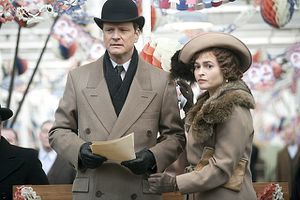
In 2010, The King’s Speech won the Oscar for Best Picture and grossed over $414 million worldwide. It was an unlikely box office champion because it was based on a true story about King George VI of Britain (1895-1952) and an Australian speech therapist Lionel Logue (1880-1953). It shows how Logue helped the king overcome a crippling stammer and how this helped him lead his country during World War II. The movie was directed by Tom Hooper and written by David Seidler.
Critics have widely praised the editing, cinematography, directing, and acting. The movie was able to express the main characters' inner life by the clever use of lighting and other cinematic techniques. Colin Firth won an Oscar for his portrayal of George IV/ The King’s Speech was produced by a British company, and it was shot mainly in London. Among the supporting cast was Helen Bonham-Carter, who played Queen Elizabeth, the wife of the king. The movie was nominated for 12 academy awards, and it won four awards, including one for Best Picture.
Before the movie began filming, the writer, Seidler, found Logue's journal and incorporated elements from the journal into the movie. However, despite this, the historical accuracy of the movie has been questioned and even widely criticized.
When does the King's Speech take place?
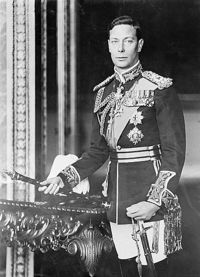
The King's Speech takes place mainly in the 1930s at a critical juncture for Britain and its Empire. The nation and its various dependencies had still not recovered from the ravages of World War or the Great Depression. Internationally, Hitler was in power in Germany, and many feared, correctly, that there would be another World War. [1] The rather bleak mood of the time is captured very well by the director. At this critical point in its history, the British Royal Family faced its crisis.
After George V's death, he was succeeded by his eldest son, who became Edward VII in 1936. Edward VII's reign was both brief and controversial. Edward wanted to marry a divorced American, Wallis Simpson. Marrying a divorced was unacceptable to many in Britain at this time as the King was also head of the Church of England. Divorce was socially unacceptable, and the Anglican Bishops and others denounced the idea of the monarch marrying a divorced woman.
When Edward VII decided to marry Wallis Simpson, he was forced to abdicate his crown soon after his Coronation. This meant that his younger brother George or Bertie, as he was known, became king. [2] The depiction of these events in the movie has been fictionalized but is reasonably accurate.
However, there were some inaccuracies in the movie that troubled viewers. One of the scenes that caused the most controversy was when Sir Winston Churchill, the future leader of war-time Britain, supported the accession of George V. This scene misrepresented Churchill's view of Edward's abdication entirely. Churchill supported Edward VII (1894-1972) and believed that he should remain as king despite his marriage to Wallis Simpson. He was friendly with the abdicated king and remained a supporter. [3]
Unlike in the movie, Churchill did have grave doubts about the ability of George VI to carry out his Royal duties. He was not alone in the belief, and many others shared that view in the highest circles of the British government. Over time, he did come to accept the younger brother of Edward VII and came to respect him as an able monarch and leader . [4]
The King and his Stutter
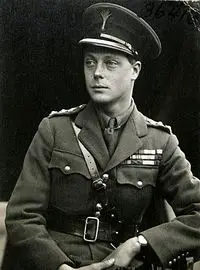
The movie's central theme is the difficulties faced by George VI because of his stutter and how Logue was able to help him overcome his speech defect. This depiction is historically accurate, and the future George VI had a serious speech impediment. In the movie, Firth's character is shown as having a terrible stammer and that when he became nervous or anxious, he was almost unable to communicate. His stammer made public speaking almost impossible for the monarch.
The movie shows that his speech impediment was a result of his insecurity and shyness. [5] This was very much the case, and George VI did have a terrible stutter from childhood. The King’s Speech accurately shows the real problems caused by the future George VI and the entire Royal Family. In one scene at the opening of an exhibition celebrating the British Empire, George struggles with a speech and becomes visibly upset. The movie shows many senior officials and members of the Royal Family becoming gravely concerned about this. In the 1930a, when the movie is set, for the first-time, Royalty members were expected to speak in public and be effective communicators because of the growing importance of the mass media. [6]
The inability of George VI to publicly speak clearly was a real problem, and it was feared that it could damage the Royal Family and even undermine confidence in the government of the British Empire. The movie does somewhat exaggerate the importance of the king’s stutter, but it was a significant issue for the Royal Family.
When did Lionel Logue begin treating George VI?
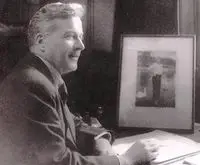
Perhaps the biggest inaccuracy in the movie is that Logue was, in reality, able to help the King to overcome his stammer before the abdication crisis and his coronation rather than after these events. He first began to treat the second son of George V in the 1920s and continued to do so for many years. The movie shows that the treatment took place in the 1930s, and this was no doubt done for dramatic effect, but this is not strictly correct.
Cooper’s movie relates how George had been seeking help all his life for his stammer, and he tried every technique and treatment available for the time, which is true. The 2010 motion picture does really capture the sense of desperation and anxiety that the future George VI had over his speech impediment. He is shown as going in desperation to the Australian Logue, and this is also correct. The therapist is shown as using innovative techniques to help George overcome his stammer, which is right. The Australian was an early pioneer in speech and language therapy, and he was an innovator. [7] The film shows Rush trying to instill more confidence in the Royal. He adopts several strategies, but none are shown to work.
How did Logue treat George VI's speech impediment?
Eventually, he provokes the king, and in his anger, he can speak stutter-free. In reality, the speech and language therapist gave the monarch a series of daily vocal exercises, such as tongue twisters, that were designed to help him to relax. This helped the future king to relax, and this was key to the improvements in his speech. The motion picture does show that the treatment was not a total success, and the king continued to have a very slight stammer. This was indeed the case. However, the improvement in the speech of George VI was remarkable, which is accurately shown in the 2010 movie. It shows George having grave doubts about Logue and his treatment when he hears that he is not formally qualified as a therapist.
In real life, this did not cause a crisis in the relationship between the British sovereign and the Australian therapist. It is correct that Logue was not formally qualified because there was no education system for language therapy when he was young. Instead, he was self-taught and had traveled the world, studying the ideas of respected speech therapists. The movie leaves the viewers in no doubt that the king and the Royal Family owed the Australian a great debt, and this was the case, and when George VI died, his widow, the Queen, wrote to the therapist to thank him for all he had done for her husband. [8]
What was the relationship between King George VI and Lionel Logue?

The movie shows that the two men began to become real friends over time, despite their differences. This was the case, and it appears that both men liked each other and even enjoyed each other’s company. The relationship between the British king and the Australian is very realistically shown, and they remained friends until the early death of George VI. The movie shows that Logue was present when George made important Radio broadcasts to the British Public. This was the case, but Logue continued to coach the king to speak in public for many years.
In the movie, Logue is shown when George VI pronounced that Britain was at war with Germany in September 1939 during a radio address to the nation. This is not correct, but the Australian did provide the king with notes on things where he should pause and breathe, and these were a real help in the most important speech the monarch ever made. Logue continued to coach the king for many years until about 1944.
The therapist is shown as being very much at ease in the King's presence and treating him like any other client. This was not the case. Despite their genuine friendship, Logue would have been expected to have been somewhat formal and respect the Royal Person of the King at all times. In real life, Logue was not as easy-going and familiar with George VI as portrayed in the historical drama. [9]
Was George VI accurately portrayed in the King's Speech?
Colin Firth’s performance was widely praised. The British actor won the Academy Award for Best Actor. While Firth's performance was widely acclaimed, there were some concerns about how accurately he portrayed the monarch. In the main, Firth did manage to capture George VI and his character in the feature film. The British actor did correctly show that the monarch was a timid and insecure man who felt that he was not equal to his Royal duties, and this was something that greatly distressed him. [10]
His stammer may have been a result of his sense of inadequacy, but this cannot be known, for certain. Firth does show that the monarch did grow in stature after he was crowned as King. It leaves the viewer in no doubt that by the end of the movie, Firth, who has largely overcome his stammer, could lead his country in its hour of greatest danger. [11]
This was the case, and the monarch became widely respected for his leadership and his calm dignity. However, the script tended to be overly sympathetic to George and avoided his character's rather unpleasant aspects. He was alleged to have both fits of anger and alleged acts of domestic violence. Those allegations have not been confirmed.
Helena Bonham Carter's performance was praised, and she does capture the personality of Queen Elizabeth (1900-2002). She was a very supportive wife and dedicated to her husband. She did not want him to become king because she feared what it would do to him. Her family, as shown in the feature film. [12] Geoffrey Rush played the character of the speech and language therapist Logue, and he presented him as a larger-than-life figure who was charismatic, and this was indeed the case. It is generally agreed that Rush really captured the personality of the acclaimed speech and language therapist.
How realistic is the King's Speech?
Overall, the movie is historically accurate. It shows the modern viewer the importance of the King's treatment for his speech impediment. This movie also captures the real sense of anxiety in Britain in the 1930s, and it broadly captures the historical context of the Coronation of George VI. The relationship between Logue and the monarch is also largely accurate. However, this is a movie, and the need to entertain means some inaccuracies, especially concerning details such as the king's treatment. However, when compared to other historical dramas, the movie is very realistic.
Further Reading
Bowen, C. (2002). Lionel Logue: Pioneer speech therapist 1880-1953. Retrieved from http://www.speech-language-therapy.com/index.php?option=com_content&view=article&id=53
Bradford, Sara. King George VI (London, Weidenfeld, and Nicolson, 1989).
Ziegler, Philip, King Edward VIII: The Official Biography ( London, Collins, 1990).
- ↑ Thorpe, A. Britain in the 1930s (London, Blackwell 1992), p 115
- ↑ Thorpe, p 118
- ↑ Rhodes James, Robert A spirit undaunted: The Political Role of George VI (London: Little, Brown & Co, 1998), p 118
- ↑ Logue, Mark; Conradi, Peter, The King's Speech: How One Man Saved the British Monarchy (New York: Sterling, 2010), p 13
- ↑ Logue, p 134
- ↑ Thorpe, p. 289
- ↑ Logue, p 145
- ↑ Logue, p 115
- ↑ Logue, p. 167
- ↑ Logue, p 189
- ↑ Logue, p 192
- ↑ Rhodes, p 201
- Historically Accurate
- World War Two History
- British History
- This page was last edited on 15 September 2021, at 05:21.
- Privacy policy
- About DailyHistory.org
- Disclaimers
- Mobile view

Top 50 by Year
Lists Explorer
100 Most Featured Movie Songs
100 Most Featured TV Songs
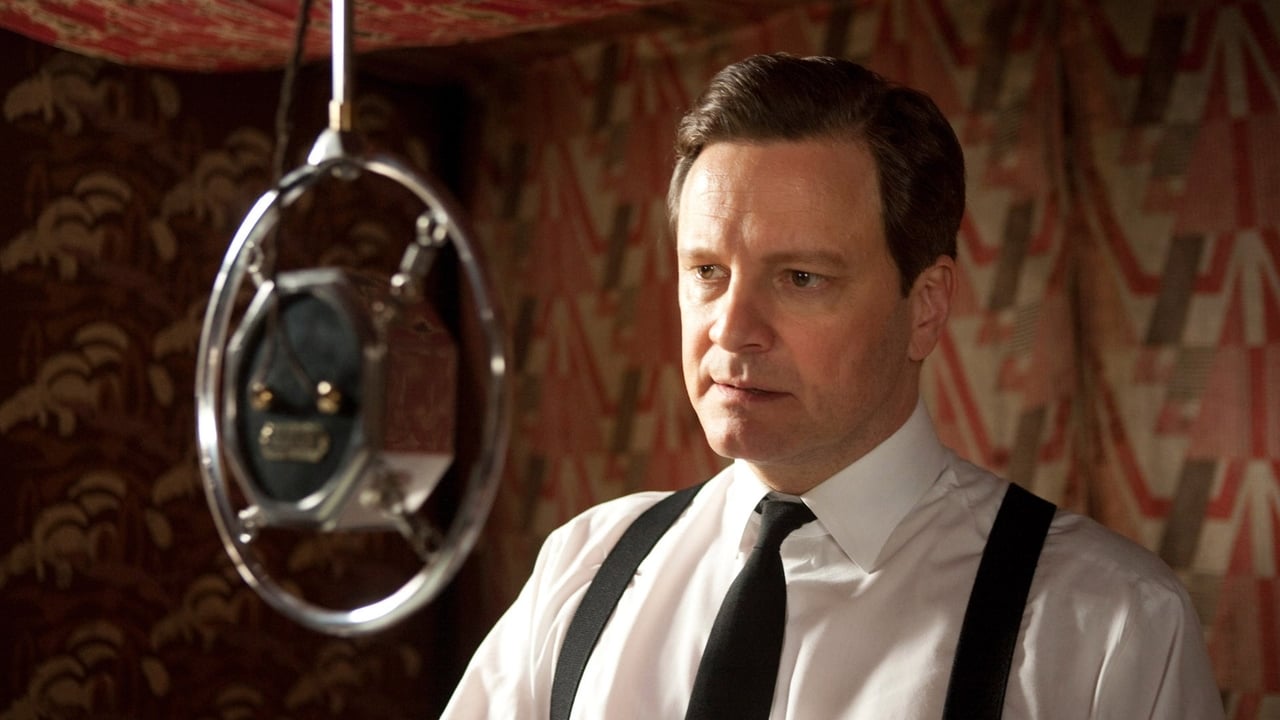
The King's Speech Soundtrack [ 2010 ]
List of songs.
The Marriage of Figaro Overture
Wolfgang Amadeus Mozart
Add scene description
Clarinet Concerto 1st Movement
Piano Concerto No.5 'Emperor' 2nd Movement
Ludwig Van Beethoven
Symphony No. 7 in A Major Op.92 Allegretto
Requiem 2nd Movement
Johannes Brahms
Who's Been Polishing the Sun
Ambrose and His Orchestra
Shout for Happiness
I Love You Truly
Lionel and Bertie
Alexandre Desplat
The King's Speech
My Kingdom, My Rules
The King is Dead
Memories of Childhood
King George VI
The Rehearsal
The Royal Household
Queen Elizabeth
Fear and Suspiscion
The Threat of War
Trailer Songs
Oh no! No trailer songs have been added yet. Add them by logging in.
Films with Similar Music
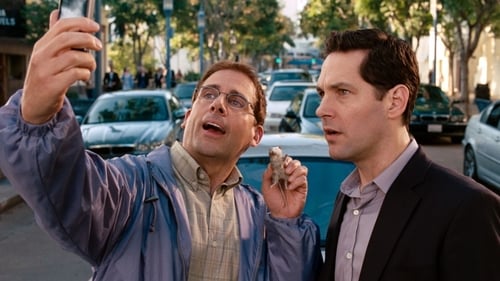
Dinner for Schmucks
2010 • 33 songs

Mission Impossible: Rogue Nation
2015 • 23 songs
4 years ago
What was the final piece of music played during the credits of The Kings Speech?
6 years ago
I could've sworn that the music played as bertie walked to the Parliament, was from Beethoven's second piano concerto.
Music Supervisors
External Links
Contributors
WhatSong is the worlds largest collection of movie & tv show soundtracks and playlists.
© 2023 WhatSong Soundtracks. All rights reserved
Quick links
Spotify is currently not available in your country.
Follow us online to find out when we launch., spotify gives you instant access to millions of songs – from old favorites to the latest hits. just hit play to stream anything you like..

Listen everywhere
Spotify works on your computer, mobile, tablet and TV.
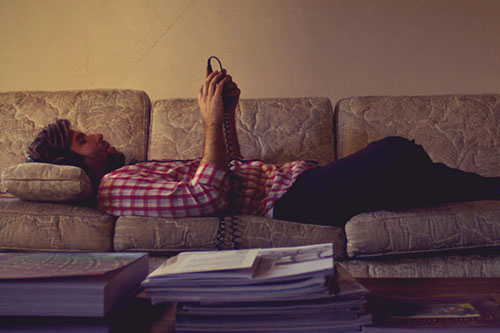
Unlimited, ad-free music
No ads. No interruptions. Just music.

Download music & listen offline
Keep playing, even when you don't have a connection.
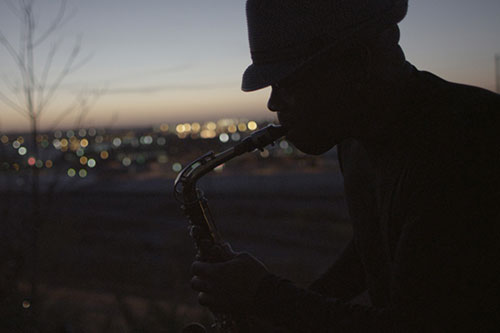
Premium sounds better
Get ready for incredible sound quality.
Helping Writers Become Authors
Write your best story. Change your life. Astound the world.
- Start Here!
- Story Structure Database
- Outlining Your Novel
- Story Structure
- Character Arcs
- Archetypal Characters
- Scene Structure
- Common Writing Mistakes
- Storytelling According to Marvel
- K.M. Weiland Site
The King’s Speech
Inciting Event: Watching Bertie, the Duke of York, go through another ineffective and humiliating “treatment” for his stammer with another respected doctor. Bertie’s wife Elizabeth gets the name of Lionel Logue, a speech therapist, and visits him to see if he can help her husband.
First Plot Point: After a disastrous first meeting with Lionel Logue, and another stressful and humiliating meeting with his father, King George V, whom everyone loves, Bertie listens to a recording Lionel made of him (Bertie) reading Hamlet perfectly, with no stammering. Bertie realizes it’s possible. He can’t not try.
First Pinch Point: Even before the death of their father the king, it’s apparent Bertie’s older brother David, the Prince of Wales, is going to make a very unsuitable king. After David is crowned King Edward VI, Lionel suggests Bertie would be a much better king. This is basically treason and Bertie says so, but Lionel pushes his point. He and Bertie argue, and Bertie breaks off their sessions.
Midpoint: David abdicates and the thing Bertie has been dreading happens: He must become king, which means not just speaking in public, but being an inspiring leader, something he never dreamed he was capable of doing. But now he must.
Second Pinch Point: Bertie calls in Lionel to help him get through the coronation. During the rehearsal, Bertie is informed Lionel is not an actual doctor. He’s embarrassed for training with someone who isn’t “qualified.”
Third Plot Point: Lionel explains how he got into speech therapy and in the process shows Bertie that results are more important than “letters behind a name.” Bertie now has full confidence in Lionel, to the point that now he’s standing up to the people who had always intimidated him to defend Lionel. He’s embracing the role of king.
Climax: With guidance from Lionel, Bertie gives the speech of his life, explaining to the country why they are going to war again so soon after the horrible experience of the Great War. This speech will define him as a king capable of leading his nation through its worst crisis. By the end of the speech, he believes it himself.
Climactic Moment: After the speech, Bertie thanks Lionel, calling him “Lionel” for the first time, instead of “Dr. Logue.” For the first time, instead of calling him “Bertie,” Lionel calls him “Your Majesty.”
Resolution: It’s very quick. Bertie goes out on the balcony with his family and we can see now that he’s fully embraced the role and responsibility of being king.
Notes: Besides being well structured, this movie is a great example of how to introduce the tension right away, then keep raising it gradually by constantly upping the stakes through the course of the story. At the beginning of the movie, Bertie–and the viewers–don’t know that by the end he’ll be looking at the same goal, of successfully making a speech, but by then the stakes will be so much higher.
(Submitted by Marnie Werner.)
Sign Up Today

Story Structure Database Index
Click here for a complete alphabetical list of all titles in the Story Structure Database.
SELECT GENRE

(Amazon affiliate link)

Subscribe to Story Structure Database Updates

Return to top of page
Copyright © 2016 · Helping Writers Become Authors · Built by Varick Design
Artist in Training

- Digital Apps
- Visual Culture
- Introductory Skills
- Documentary
- Digital Applications Summary
- DRP Summary
- Visual Culture Summary
The Kings Speech-Cinematography
(SDuplic, 2011)
In the final speech scene of ‘The Kings Speech’ distortion occurs with a wide angle lens. Close ups are very, very close to the camera. The distortion is uncomfortable as it feels as though it is the point of view of the the other person. It mimics invasion of personal space. As in the rest of the camera rocks slightly, the camera is at just out of level. A slight wobble alluding to the King’s Speech impediment and the anxiety he is feeling.

The P.O.V. reverse shot also shows distortion with the King’s body reflection overlaying Lough’s body, his head and hands and apparently separate from an invisible body. Semioticaly showing his concentration on Lough but also the domination of the microphone. It acts like barrier stopping him following Lough’s cues. The distorted and “cut” reflection shows the King his dismembered body further demonstrating the power the microphone has over him.
This scene, like the rest of the film is very intimate. It shows the close bond between the two men which has transcended the therapist/client relationship.
It cuts away to listeners in the wider world, again using odd compositions that have been used throughout the film with actors angled out of the screen rather than across/ into the screen. Like the ultra-wide angle cinematography in the ‘The Third Man’ the vanishing points are outside of the screen to create disorientation in the viewer to increase empathy of what the King is feeling. The shot of the soldiers moves the focus deep into the picture. Focus has been used throughout the picture to denote importance.
At the beginning Lough has equal screen time in the scene actively encouraging ,again as it progresses the focus becomes the King. The encouragement no longer required.
The film won Best Director, Best Motion Picture, Best Director, Best Original Screenplay and nominated for eight others including cinematography. It was similarly nominated in the Golden Globes, and Baftas in the same category but did not win. However, it was beaten by ‘Inception’ an extraordinary cinematographic presentation.
Reflections
The distortions in the camera reflecting the psychological disturbances are very impressive indeed. I would like to use this technique when filming in Ilfracombe to add this sense of distortion. and that everyone is looking at the character.
Share this:
Leave a comment cancel reply, recent posts.
- Shakespeare
- Mode Theory
- Sharpe’s Enemy
- Black Knight
- The Bunker (1981)
- February 2016
- January 2016
- December 2015
- November 2015
- October 2015
- Entries feed
- Comments feed
- Blog at WordPress.com.

- Already have a WordPress.com account? Log in now.
- Subscribe Subscribed
- Copy shortlink
- Report this content
- View post in Reader
- Manage subscriptions
- Collapse this bar
You must be logged in to post a comment.

It’s unclear exactly when Melania, 54, and Barron, 18, arrived at the family’s Manhattan home, but a source said, “Melania and Barron were smuggled in through the side entrance.” Reports said she was at Trump Tower when the guilty verdict against her husband came down.
Another insider told Page Six of the scene yesterday in Trumpworld when the verdict came in: “It’s like a funeral … There was hope all day and then none!”
The source added, “Everyone says Melania and the entire family are rallying around the former president. But the mood is nonetheless gloomy and gloomier right now. It’s definitely viewed as a downer at Mar-a-Lago.”

A big Trump donor also summed it up by saying: “What a bummer!”
An insider added of the scene on Thursday evening, “Everyone is upset. Trump talked to both Melania and all his children, including Ivanka. [But] Trump says the real verdict will take place in November when the people vote.”
The former president, 77, was scheduled to speak Friday morning at Trump Tower in Midtown, and he’d called the case against him a “rigged, disgraceful trial” after he was convicted of 34 felonies in the infamous “hush money” case.

A source added of the mood in Trumpland yesterday, “Everyone was hoping for him to get off or at least get a hung jury … the fact it happened rather quickly has everyone in a tizzy. But Trump’s friends say it’s not unexpected, and they’re prepared for the next steps, including the appeal.”
“The real verdict will be Nov. 5 by the people … I’m a very innocent man,” Trump said as he left the courtroom, slamming President Biden, Manhattan District Attorney Alvin Bragg and the judge who oversaw the trial.
Want more celebrity and pop culture news?
Start your day with Page Six Daily.
Thanks for signing up!
Please provide a valid email address.
By clicking above you agree to the Terms of Use and Privacy Policy .
Want celebrity news as it breaks? Hooked on Housewives?
Former White House aide Ivanka Trump had posted a pic of her dad and her as a kid to Instagram Stories with the caption “I love you dad” and a heart emoji.
A source said of recent speculation that Ivanka would enter the campaign — despite previously backing away from politics — “The verdict will put a damper on Ivanka’s entry into the campaign, and she’ll probably now wait until the convention.”

Sources close to Ivanka have insisted her plans to concentrate on family and not politics haven’t changed.
While Trump immediately returned to work Friday — a day after becoming the first ex-president ever convicted of felony criminal charges — a spy told us that the trial could have taken a toll.
“People who saw Trump go into the elevator in [Trump Tower] said he’s ‘finally looking older and tired.’”
Share this article:

Advertisement

IMAGES
VIDEO
COMMENTS
the last speech from the great movie the kings speech
About Press Copyright Contact us Creators Advertise Developers Terms Privacy Policy & Safety How YouTube works Test new features NFL Sunday Ticket Press Copyright ...
The King's SpeechThis is a 2010 British historical drama film. Actor Colin Firth played the future King George VI who suffers from stammer. And in order to c...
Movie Speech from The King's Speech- King George VI BBC Address to the Nation. : M ovie S peech. "The King's Speech" (2010) King George VI BBC Radio Address to the Nation Announcing WWII Outbreak. In this grave hour, perhaps the most fateful in our history, I send to every household of my peoples, both at home and overseas, this message, spoken ...
"The King's Speech," a historical drama released in 2010, directed by Tom Hooper and written by David Seidler, captivates audiences with its portrayal of King George VI's journey to overcome his stammer with the help of Australian speech therapist Lionel Logue. ... The scene captures the essence of Bertie's transformation and his ...
The King's Speech is a 2010 historical drama film directed by Tom Hooper and written by David Seidler. Colin Firth plays the future King George VI who, to cope with a stammer, sees Lionel Logue, an Australian speech and language therapist played by Geoffrey Rush.The men become friends as they work together, and after his brother abdicates the throne, the new king relies on Logue to help him ...
The last bars of "God Save The King" echo down the corridor. ROBERT WOOD, the Chief BBC Engineer on Location whispers: WOOD Let the microphone do the work, sir. Wood checks his watch. WOOD (CONT'D) Thirty seconds, sir. Bertie braces his shoulders manfully, but without an ounce of confidence, closes his eyes, nods, opens them, and
"The King's Speech" tells the story of a man compelled to speak to the world with a stammer. It must be painful enough for one who stammers to speak to another person. To face a radio microphone and know the British Empire is listening must be terrifying. At the time of the speech mentioned in this title, a quarter of the Earth's population was in the Empire, and of course much of North ...
In the movie's final scene, Logue steps into a broadcasting room with Bertie and helps him get through his first wartime speech. With Logue's help and friendship, Bertie gives a killer speech, and people all over England are inspired by his words. A final set of 411 tell us that Bertie and Logue would go on to be friends for the rest of their ...
The King's Speech: A Rhetorical Analysis. Anyone that has seen the 2010 film The King's Speech knows of the numerous circumstances preceding King George VI's delivery of his first wartime broadcast. Above all, they know of his personal anxiety surrounding his usurping of the throne and speech impediment; however, this sample of historical ...
Logue & Bertie become friends. On 20 January 1936 George V dies, and David, the Prince of Wales (Guy Pearce) accedes to the throne as King Edward VIII, & wants to marry Wallis Simpson (Eve Best), an American divorcee, which would provoke a constitutional crisis. Bertie confronts David, who only accuses Bertie of having designs of his own ...
Great Drama from The King's Speech (2010). Geoffrey Rush and Colin Firth at their best in the greatest drama of 2010. One of the most memorable scene from 20...
How historically accurate is the movie The King's Speech. Firth as George VI and Bonham-Carter as his wife Queen Elizabeth. In 2010, The King's Speech won the Oscar for Best Picture and grossed over $414 million worldwide. It was an unlikely box office champion because it was based on a true story about King George VI of Britain (1895-1952 ...
The King's Speech Soundtrack [2010] 21 songs / 118K views. List of Songs + Song. The Marriage of Figaro Overture. Wolfgang Amadeus Mozart. Add time. Add scene description. Clarinet Concerto 1st Movement. Wolfgang Amadeus Mozart. Add time. Add scene description. Piano Concerto No.5 'Emperor' 2nd Movement ... What was the final piece of music ...
Listen to The King's Speech: Final Speech Scene - Beethoven Symphony No. 7 In A Major, Op. 92: II. Allegretto on Spotify. NBC Symphony Orchestra · Song · 2011.
The King's Speech. Inciting Event: Watching Bertie, the Duke of York, go through another ineffective and humiliating "treatment" for his stammer with another respected doctor. Bertie's wife Elizabeth gets the name of Lionel Logue, a speech therapist, and visits him to see if he can help her husband. First Plot Point: After a disastrous ...
The Kings Speech-Cinematography. In the final speech scene of 'The Kings Speech' distortion occurs with a wide angle lens. Close ups are very, very close to the camera. The distortion is uncomfortable as it feels as though it is the point of view of the the other person. It mimics invasion of personal space.
The King's Speech (Original Motion Picture Soundtrack) is the soundtrack to the Academy Award-winning film The King's Speech, released by Decca Records on 22 November 2010. Alexandre Desplat composed the film's original music. The score consisted of minimalistic sounds created with piano and strings, and a limited orchestra with oboe and harp being used.
The main scenes at the climax of this wonderful film were set to instantly recognisable music by Beethoven, but that didn't stop composer Alexandre Desplat f...
THE KING'S SPEECH Written by David Seidler OPEN ON: 1 INT. BATHROOM, YORK HOUSE, LONDON - DAY (MID-1930'S) 1 A shimmering surface of cold water - held in an immense, free standing, white enamelled bathtub with gilded lion's legs - bulges in SLOW MOTION to the chords of Handel's "Trumpet Volunteer".
Scene 2: Albert's Final Speech. YouTube Link: Final Speech. Breakdown: This climactic scene uses symbolism (the microphone) and sound techniques to emphasize Albert's triumph. The steady camera work and clear sound editing reflect his newfound confidence and control, underscoring the theme of overcoming adversity. Scene 3: Confrontation ...
The King's Speech movie clips: http://j.mp/1x2C3KRBUY THE MOVIE: http://amzn.to/zoi2r4Don't miss the HOTTEST NEW TRAILERS: http://bit.ly/1u2y6prCLIP DESCRIPT...
Melania Trump and son Barron were at Trump Tower, sources tell Page Six, in the wake of the guilty verdict against former president Donald Trump.
MBB brings you the BEST Bloopers, Gag Reels, Directors Cuts, Behind The Scenes and more.The Behind the Scenes look into the world acclaimed movie The King's ...